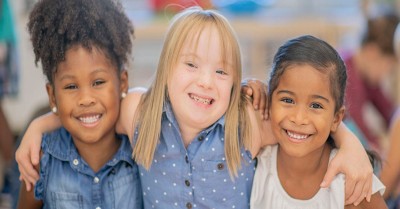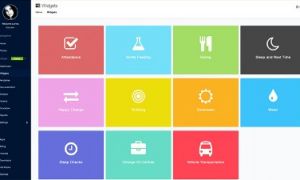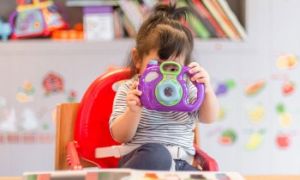As an Early Childhood Educator, it enables you to acknowledge and embrace conversations around disability and inclusion with children. The following article provides strategies to discuss inclusion and disability with children.
More than 4 million Australians, or around 18% of the population, have a disability, according to People with Disability in Australia 2020, a study published by the Australian Institute of Health and Welfare. The good news is that we have gotten better at talking about it and showing acceptance.
Strategies To Discuss Inclusion and Disability With Children
- Allow the children to be curious and to talk about differences - Embrace the discussion about the special characteristics of some children. Leanne Fretten, the CEO of Sylvanvale, the parent organisation of Mikarie Child Care Centre, which is an Exceeding rated service recognised for its all-abilities practice, says that she advised the educators to entertain children’s questions about disability and make them understood in an age-appropriate way. This is the effort that makes the topic very natural to children.
- We have to make it understood to all the children that everyone is different and unique in their own way - Leanne Fretten has also told us that her centres do not refer any disability until it requires any particular medical attention. They arrange to set all of them in the same way. This encourages inclusion more organically among the children. They also realise the differences and it is helpful to accept the matter, for both the parties who are normal and who are specially abled.
- Use resources in play full ways. For example, to analyse epilepsy in a child they used resources from Epilepsy Foundation and they storied the incidents as “the brain has gone to sleep”, and children replied, “we understood”.
- Avoiding “inspirational Troop” is also important - Sometimes we dealt with children with disability as they are “heroes”. This is not the right way to treat them. Because they also have some limitations and they should not to tagged with motivational speech like “never give up” etc. They also have barriers. They are like all the other children. We should encourage them but cannot pressurise them by using motivational speech all the time. Leanne Fretten says that reinforcement and praise are okay but anything that pressurised them instead of making them motivated is not okay.
- The importance of empathy for kids - Children should not be said that they have to behave in a particular way with disabled people rather they should encourage to feel the situation if they were in that special situation and tell them to choose how to behave. The other facts are more exposure to specially-abled people that will help to make the child empathetic which is the key to the change we want that this is the key when children can accept and include children with disabilities more organically.
- It's okay to use the term “disabled” - This word is okay until you use it derogatorily. This is actually like children are not habituated to seeing a tomato with blue colour, when they will be habituated, the inclusion will happen more automatically.
James is the author of a book called What Happened to You? has one leg been asked so many times by others “what happened to you”. He along with his wife, wife Lucy Catchpole, a wheelchair user, publish a blog about disability, raising children, and children’s literature. He told, “It isn't to say, ‘this is how you behave around people. It's to say, ‘imagine if this was you and then they get it. I simply want readers to have the capacity to try to imagine what it would be like to look different and be asked questions about it all the time.
Being included means feeling like you belong. Because they feel safe, cared for, and respected when children have a sense of belonging, they are more likely to thrive. We firmly believe that everyone has the right to access, participation, and outcomes..
Reference:
Discussing Disability And Inclusion — How Toys Can Build Empathy And Open-Mindedness, CELA







 As an Educator in Australia, your pay rate falls under the Children’s Services Award 2010. This award states the minimum amount that an employer can
As an Educator in Australia, your pay rate falls under the Children’s Services Award 2010. This award states the minimum amount that an employer can When working as a qualified Early Childhood Teacher (with a university degree) within a service, your rate of pay will come from the Educational Services
When working as a qualified Early Childhood Teacher (with a university degree) within a service, your rate of pay will come from the Educational Services When working as a Diploma Qualified Educator your pay rate is from the Children's Services Award 2010. This Award states your minimum rate of pay
When working as a Diploma Qualified Educator your pay rate is from the Children's Services Award 2010. This Award states your minimum rate of pay When working as a Cert 3 Qualified Educator, your pay rate is from the Children's Services Award 2010. This Award states your minimum rate of
When working as a Cert 3 Qualified Educator, your pay rate is from the Children's Services Award 2010. This Award states your minimum rate of Educational Leaders play a crucial role in their early childhood service by ensuring that the educational program aligns with best practices and supports the holistic
Educational Leaders play a crucial role in their early childhood service by ensuring that the educational program aligns with best practices and supports the holistic In early childhood education and care, ratios are more than a technicality—they are a frontline safeguard. Every child deserves responsive supervision, emotional connection, and developmental
In early childhood education and care, ratios are more than a technicality—they are a frontline safeguard. Every child deserves responsive supervision, emotional connection, and developmental With the new national child safety reforms kicking in on 1 September 2025, early childhood services like yours have a real opportunity to lead the
With the new national child safety reforms kicking in on 1 September 2025, early childhood services like yours have a real opportunity to lead the Here’s a comprehensive Mobile Phone and Smart Watch Policy tailored for early childhood education and care (ECEC) services in Australia, aligned with the latest 2025
Here’s a comprehensive Mobile Phone and Smart Watch Policy tailored for early childhood education and care (ECEC) services in Australia, aligned with the latest 2025 The Sea of Fish Challenge is a national initiative that invites children, educators, families, and communities to create and display fish artworks as a symbol
The Sea of Fish Challenge is a national initiative that invites children, educators, families, and communities to create and display fish artworks as a symbol Across the early childhood education and care sector, educators are sounding the alarm: current staffing ratios are insufficient to deliver safe, meaningful, and developmentally appropriate
Across the early childhood education and care sector, educators are sounding the alarm: current staffing ratios are insufficient to deliver safe, meaningful, and developmentally appropriate


